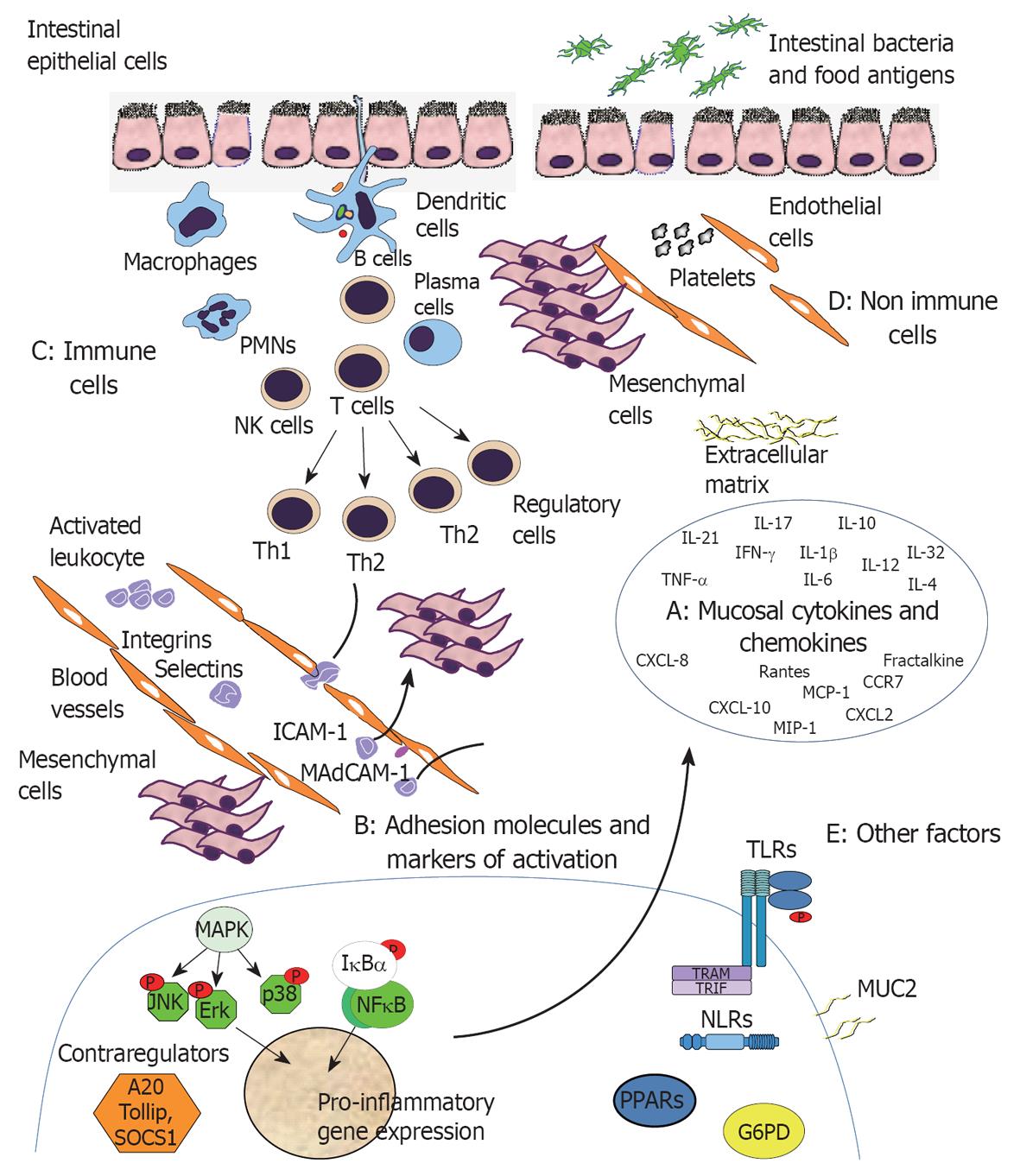Copyright
©2010 Baishideng.
World J Gastroenterol. Jun 7, 2010; 16(21): 2616-2625
Published online Jun 7, 2010. doi: 10.3748/wjg.v16.i21.2616
Published online Jun 7, 2010. doi: 10.3748/wjg.v16.i21.2616
Figure 1 Mucosal biomarkers in inflammatory bowel disease (IBD).
Based on available data from IBD pathogenesis, there are five major categories of mucosal biomarkers which can be assessed as predictors of disease severity and also response to therapy. A: Mucosal cytokines and chemochines [tumor necrosis factor (TNF)-α, interleukin (IL)-6, CXCL-2, etc.]; B: Adhesion molecules (MadCAM, ICAM-1, etc.) and intracellular markers of activation [mitogen-activated protein kinase (MAPK), nuclear factor (NF)-κB, A20, etc.]; C: Immune cells (dendritic cells, monocytes, macrophages, lymphocytes, NK, plasma cells, etc.); D: Non immune cells (endothelial cells, mesenchymal cells, platelets, etc.); E: Other factors [toll-like receptors (TLRs), NLRs, mucin (MUC), G6PD, etc.].
- Citation: Scaldaferri F, Correale C, Gasbarrini A, Danese S. Mucosal biomarkers in inflammatory bowel disease: Key pathogenic players or disease predictors? World J Gastroenterol 2010; 16(21): 2616-2625
- URL: https://www.wjgnet.com/1007-9327/full/v16/i21/2616.htm
- DOI: https://dx.doi.org/10.3748/wjg.v16.i21.2616









